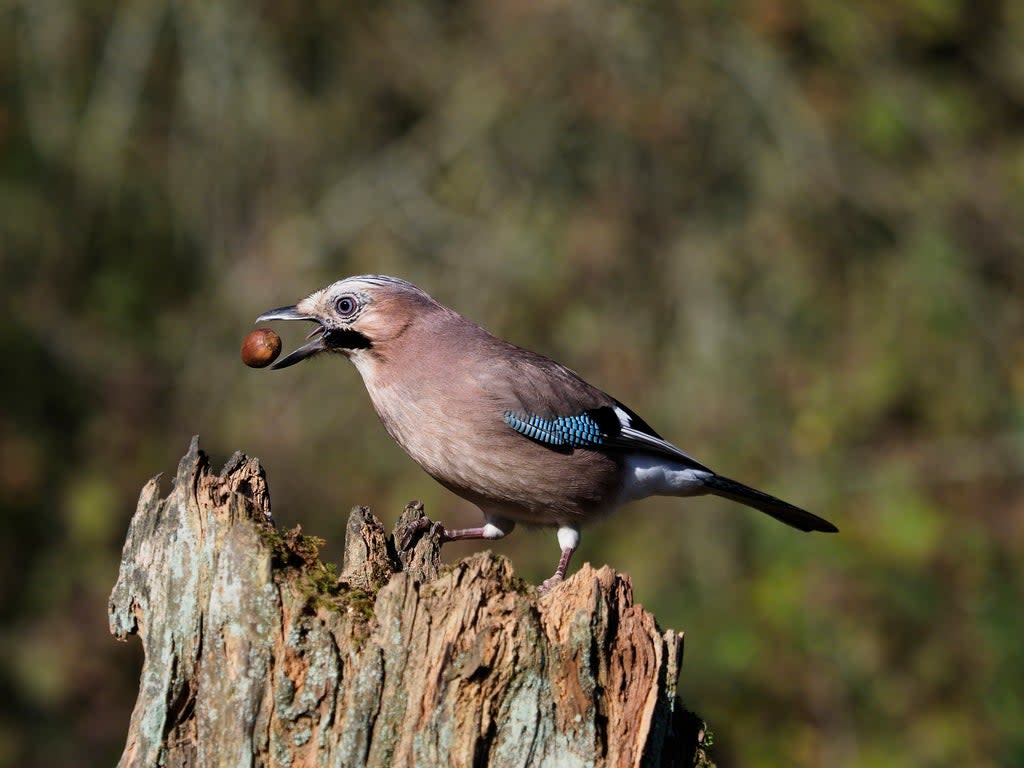One million acres of new forest could be created in England through natural regeneration, campaigners say

Over a million acres of urgently needed new woodland could be created in England easily and cheaply – by simply allowing existing woods to regenerate and spread, campaigners and researchers have said.
A mapping study undertaken by Friends of the Earth and Rewilding Britain found that allowing existing broadleaved woodlands in England to self-seed by 150 metres on all sides – not including in existing nature reserves, priority habitats, or productive farmland – would produce at least a million acres of new woodland.
The groups said the analysis should bolster calls for the UK government to pay greater heed to natural generation as a means of tackling the nature and climate emergencies.
Rewilding Britain describes natural regeneration as the process by which trees self-seed through wind-blown seed dispersal or where animals such as jays and squirrels bury nuts that then germinate.
The benefit is that it naturally occurs, however the process can often be disrupted or extinguished entirely by grazing animals kept in artificially high numbers, such as sheep and deer, which eat the shoots and saplings.
Jays alone may be responsible for planting as many as one in two oak trees, and recent research suggests they cultivate young oaks so they can feed fresh new leaves, called cotyledons, to their chicks. With jay numbers rising, the future for oak trees is also improving.
The analysis identified the local authority areas with the greatest potential for natural woodland regeneration, and includes Cornwall, Harrogate and Northumberland.
Growing more trees not only helps draw down and store more carbon from the atmosphere thereby helping to address the worsening climate crisis, but also provides rich habitats for wild animals, helping to boost crashing levels of biodiversity.
Human activity across the British Isles has left England as one of Europe’s least wooded countries. Just 10 per cent of England is forested according to the government, compared to 19 per cent of land in Scotland, 31 per cent in France, and 75 per cent in Finland, which is Europe’s most forested country.
The new study shows there is “more than enough suitable land to double England’s tree cover”, FoE and Rewilding Britain said, and doing so would not affect precious habitats such as peatlands or valuable farmland.
Current rates of woodland creation in England remain at historically low levels, with just over 5,000 acres (2,000 hectares) established this past year, mostly through new planting.
Mike Childs, head of research at Friends of the Earth, said: “Doubling the UK’s tree cover should be a government priority, this is because the benefits are clear to see. It will help to restore nature and absorb climate-wrecking carbon emissions. By enabling woodlands to flourish, we can also reduce the UK’s dependence on timber imports in a further win for the planet.
“Natural regeneration puts us well on the way to that goal in England. By substantially increasing funding for farmers and other landowners so they can set aside suitable land for natural woodland regeneration, we can let nature work its magic.”
Guy Shrubsole, policy and campaigns coordinator at Rewilding Britain, said: “This new study confirms that natural regeneration has a huge role to play in helping meet woodland creation goals, draw down carbon and help wildlife to recover.
“Allowing trees to self-seed leads to more biodiverse woodland and scrub habitat than if they are simply planted, and supports many threatened species of plants, birds and mammals. By working with nature, it helps resolve the problem of growing the â‘right tree in the right place’ – and does so at lower overall cost, because you don’t have to pay for saplings or the costs of planting them.”
Read More
World’s largest carbon-sucking factory starts operation in Iceland
‘The climate crisis is a reality’: Africa’s summer of extremes
Against the odds: The fight to save sea turtles in Ras Baridi
Australian minister slammed for dismissing farmers’ climate change concerns
Insulate Britain pausing ‘civil resistance’ campaign until 25 October
Cop26 likely to miss target, says US climate envoy John Kerry

